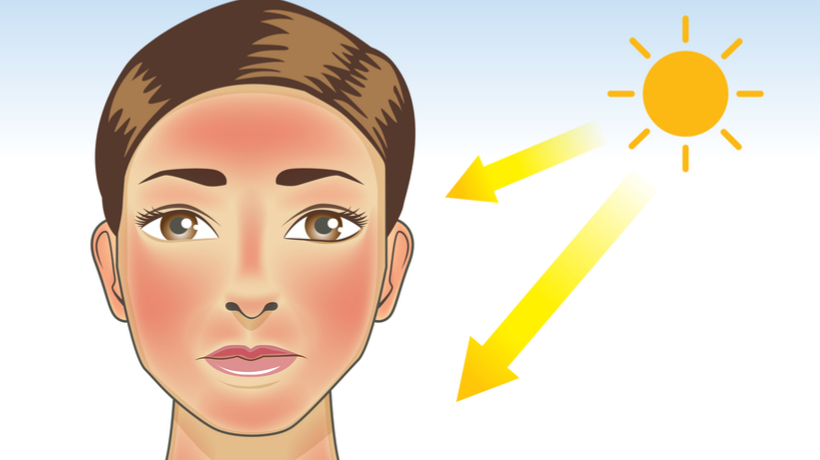Your skin faces potential sun damage every time you go outside without protection—but that damage doesn’t always show up until many years later, and might make some women insecure about their appearance. Due to UV radiation from the sun, the actual DNA of your skin cells can be altered, causing lines, wrinkles, discoloration and even cancer.
But I have some good news: For the most part, sun damage is reversible. Once you start protecting yourself from UV radiation, you stop the process of additional damage and might even reverse the deterioration thus far. If you’re looking to repair your skin, scroll through the remedies below that you may not have tried yet.
Learn to exfoliate better
Smooth your skin to brighten up the face and get rid of discolored skin cells. Instead of unevenly scraping and rubbing dead skin cells off, which is what most facial scrubs do, try a chemical exfoliant. When choosing a product, look for one with a five to eight percent concentration of glycolic acid. The active ingredient will help remove the extra layers of dead cells that are storing unattractive brown pigment on your face.
Get rid of dark spots
The next step is to get rid of hyperpigmentation, AKA those dark spots on the face that everyone hates. To do this, look for products with skin lightening agents. Experts recommend hydroquinone to help brighten dark patches and to stop the production of the darker melanin (that is triggered when your skin needs to fight off UV radiation).
Remember: sunscreen is your best friend
Incorporate sunscreen into your daily morning regimen to prevent any additional sun damage. The American Academy of Dermatology recommends using a broad-spectrum sunscreen to protect against UVA and UVB rays at a minimum sun protection factor of 30. Apply the cream 30 minutes before going outside and reapply at least every two hours, but more often if you’re swimming or sweating. And don’t forget about the tricky spots! For example, remember to use a sunblock on your lips with an SPF of 20 or more.
Embrace antioxidants
Antioxidants help safeguard the skin’s DNA, prevent cancer, and protect the collagen and elastic tissue from free radicals that can cause wrinkles and sagging skin. Experts recommend that you use antioxidant creams and serums every night. Vitamin C-based antioxidants are best for reducing uneven brown pigmentation, but polyphenols, vitamin E, and ferulic acid are important to incorporate too.
Check your medicine cabinet
Know that some medications and skin care products can increase your skin’s risk of developing UV damage. These include certain antibiotics and some prescription medicines that are used to treat psychiatric illnesses, high blood pressure, heart failure, acne and allergies. If you notice that you’re getting more sun damage on the skin than usual, and you suspect it might have to do with your medicine cabinet, consult your doctor about switching medications or what precautions you should be taking to protect yourself.
Sources:
https://www.womenshealthmag.com/beauty/a18727233/reverse-sun-damage/
https://www.health.harvard.edu/skin-and-hair/sun-damaged-skin



